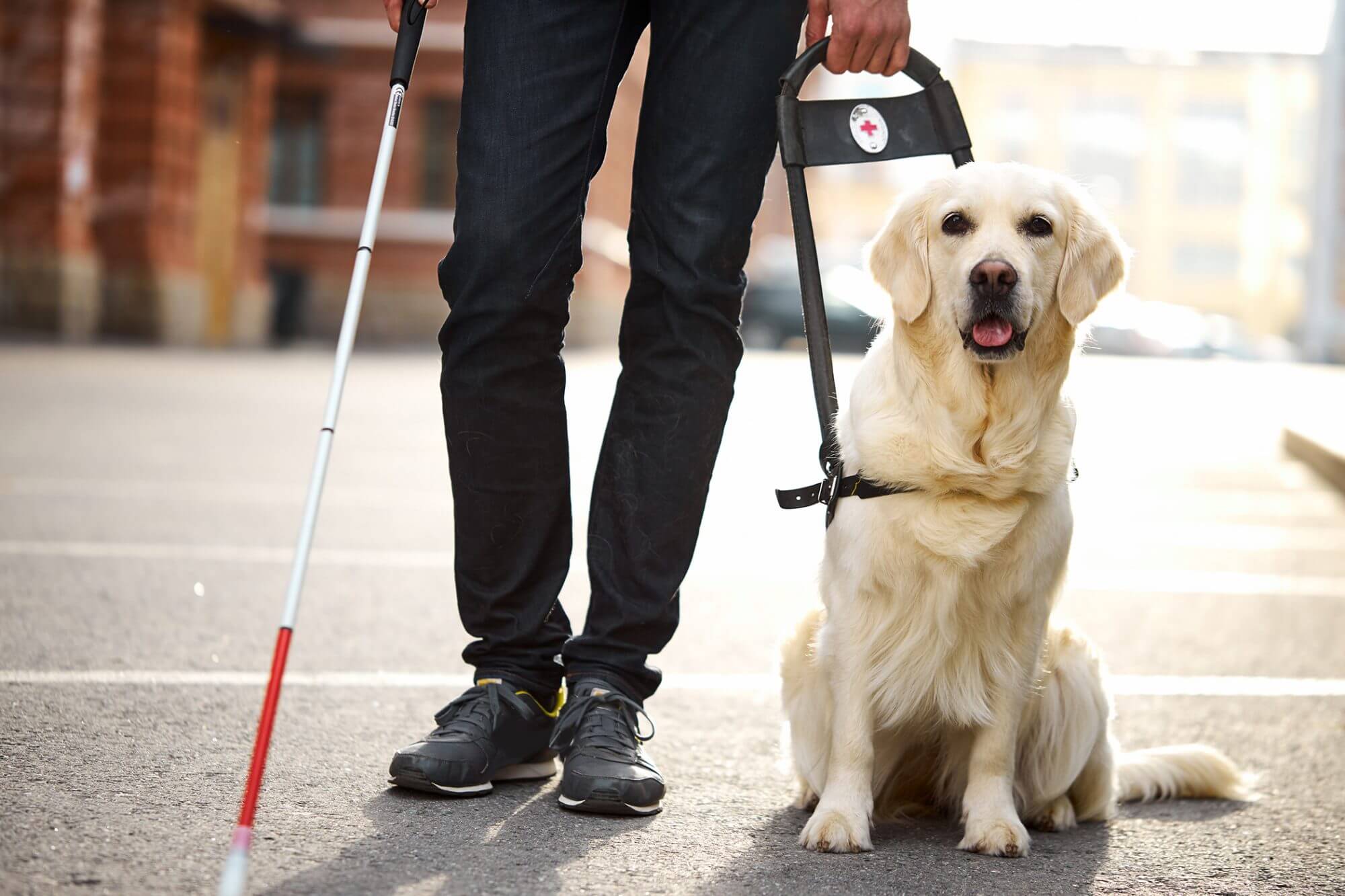California cracks down on fraudulent practices surrounding emotional support animals

AB 468 was co-sponsored by Guide Dogs for the Blind (GDB) and Canine Companions, sending a clear message that accommodations should be reserved for legitimate service dogs and the people they serve.
![]()
For rental housing providers who feel compelled to make the “reasonable accommodation” of allowing an emotional support animal in the rental unit for fear of a costly lawsuit by a tenant claiming a disability, this concern will soon be assuaged.
After beating back recall efforts, a reinvigorated Governor Newsom has been busy signing a spate of pioneering legislation. In an only-in-California moment, AB 468 imposes a number of requirements designed to curb emotional support animal fraud.
What is a service animal anyway?
It’s important to make the distinction between emotional support animals or “comfort” animals and bona fide service animals that are generally classified as a Guide Dog or Seeing Eye Dog, a Psychiatric Service Dog, SSIG (Sensory or social alert), or Seizure Response Dog.
These service animals are specially trained in their roles to assist a person with disabilities, whether it is to pull a wheelchair, retrieve dropped items, alert hearing-impaired persons to a sound, remind a person to take medication, or press an elevator button, among other assigned tasks.
In contrast, emotional support or comfort animals can be used as part of a medical treatment plan but are not considered service animals. The United States Department of Housing and Urban Development Regulations defines emotional support animals as “animals that alleviate one or more identified symptoms or effects of a person’s disability. They provide comfort to a person with a psychiatric disability, but are not trained to perform specific tasks to assist them.”

Notably, only dogs are recognized as service animals. Emotional support or comfort animals need not be a canine. Indeed, you have likely seen comical stories of someone who has asserted that their duck, lizard, peacock, or alligator are necessary companions to ensure well-being.
Airlines were not amused by poorly behaved critters flying freely in the cabin and enabled by new Department of Transportation rules, carriers cracked down by imposing common-sense rules on which critters could get on board.
California politicians have finally followed suit by restoring sanity to laws surrounding emotional support animals while protecting public access rights for people who have a genuine need for service animals to assist in performing essential tasks and improve their lifestyle.
Provisions of the new law - before and after
Prior to AB 468, the bar was low for tenants to assert a disability and the corresponding entitlement to have an emotional support or comfort animal. If you were to Google “emotional support animals,” you’d find a profusion of opportunistic websites that are willing to sell fraudulent certificates and tags that promise consumers access and privileges for their pets equal to that of people with legitimate service animals. These transactions rely on self-reported information without any credible medical assessment.
It is already a crime for a person to knowingly and fraudulently represent a dog as a service animal. Yet there has been no similar provision for emotional support or comfort animals.

Enter AB 468. There are three components to fill the void and combat fraud.
For one, any person or business that sells or provides a dog for use as an emotional support or comfort animal is required to notify the would-be owner of the dog three things:
(1) the dog does not have the special training required to qualify as a guide, signal, or service dog;
(2) the dog is not entitled to the rights and privileges accorded by law to a guide, signal, or service dog; and
(3) knowingly and fraudulently representing oneself to be the owner or trainer of any canine licensed as, to be qualified as, or identified as, a guide, signal, or service dog is a misdemeanor.
Ditto for persons or enterprises that sell or provide a certificate, misleading identification, leash, tag, vest, certificate, or harness - the same written notice must be furnished to the buyer or recipient.
Finally, health care practitioners are not allowed to provide documentation related to an individual's need for an emotional support or comfort animal unless four boxes are checked. Namely, the issuer must show:
(1) They hold a valid, active, license to provide professional services within the scope of the license in the jurisdiction where the documentation is provided;
(2) A client-provider relationship with the individual has been established for at least 30 days prior to providing the documentation,
(3) A clinical evaluation of the individual regarding the need for an emotional support dog has been completed, and
4) Notice has been provided to the individual that knowingly and fraudulently representing oneself to be the owner or trainer of any canine licensed as, to be qualified as, or identified as, a guide, signal, or service dog is a misdemeanor.
You can study up on the entire law as enacted here →
Failure to comply with the law may result in hefty fines and for health care practitioners out of step with AB 468, discipline from the licensing board may result.
For Rabih Dow, the Director of Outreach and Advocacy at Guide Dogs for the Blind, it is all about transparency to reduce fraud and protect the reputations of legitimate service dogs and the people they assist.

“The online sales of fraudulent certificates have become increasingly dangerous for the public and for dogs alike, causing confusion about legitimate service animals and complicating the lives of legitimate service-dog handlers whose disabilities are cruelly questioned .... This law will curtail selling fraudulent tags and certificates for untrained dogs, a practice that has confused people with false promises of access for their dogs to restricted public spaces such as restaurants, stores, planes, and public buildings.”
To which we might add rental units.
A topic that tugs at the heart
In our long campaign of educating the landlording community about new laws and regulations, we have spoken just about every conceivable topic, but none of them has elicited a more brisk and emotional response than pet policies.
We love animals and are keenly aware of the value they bring. We were intrigued to come across this article on how therapy dogs serve as a welcome distraction for exhausted wildfire crews who need their spirit uplifted, as well as the four-legged friends who experience ear-to-ear smiles when greeting the heroes.
While we are pet lovers, we also have an affinity for the rights of property owners, and as we often do in our practice of landlord-tenant law, pose the question of what is reasonable. We believe AB 468 meets that test.
Parting takeaways
The new law goes into effect on January 1, 2022, and will not impact rental units that are already occupied by emotional support animals that are in violation of the provisions of AB 468. In other words, the law won’t be grandfathered in to affect tenants who currently have an animal that gained their status as an emotional support animal through fraudulent means.
If there were misrepresentations by the seller of the animal or certificates, tags, merchandise, and so forth by claiming emotional support animals are afforded the same preferential treatment as service animals, they can still face liability. The purchaser has recourse in suing the seller for fraud.
